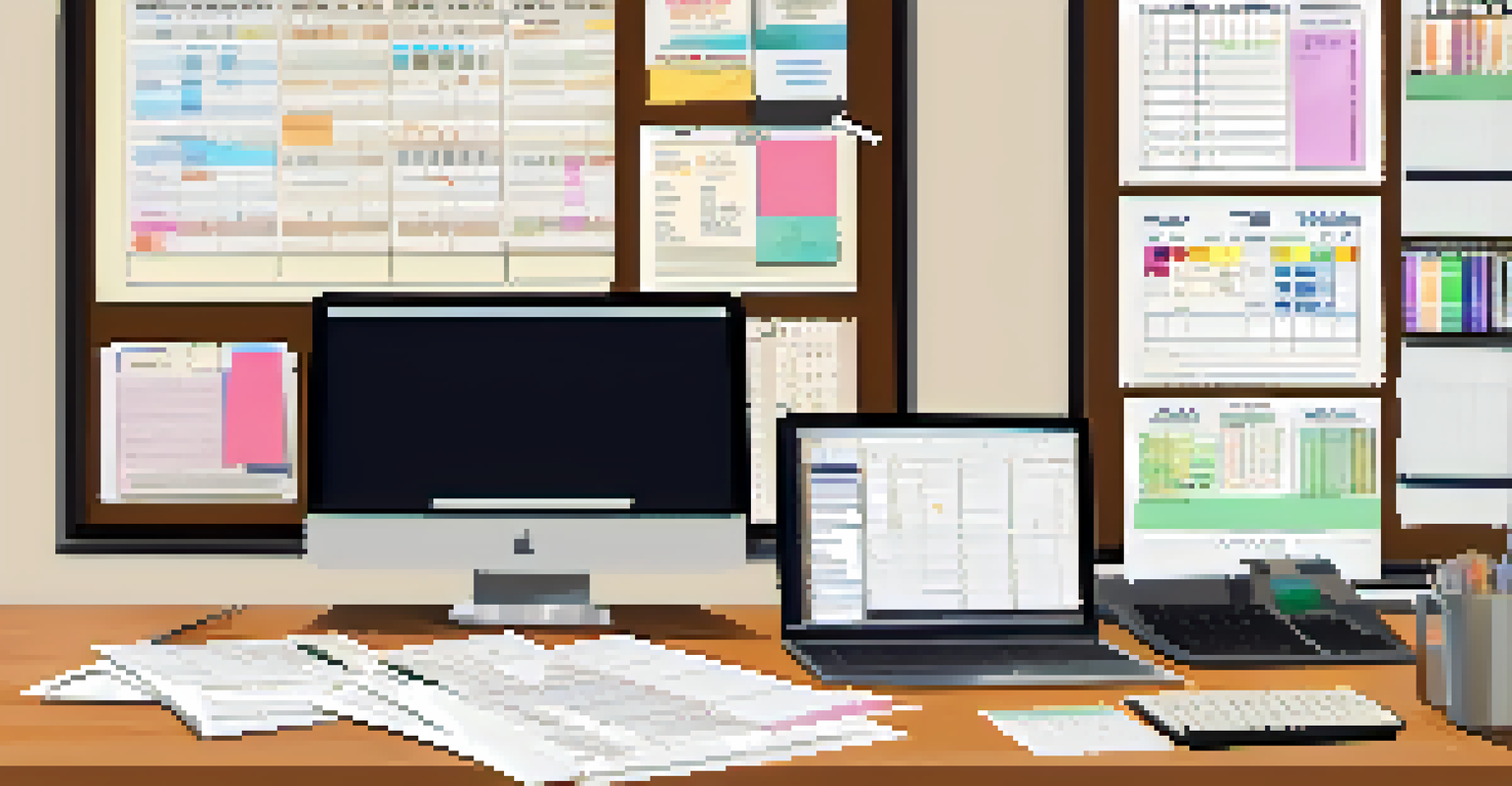Understanding Business Expenses: Freelancers’ Tax Deductions

What Are Business Expenses for Freelancers?
Business expenses are the costs incurred in the course of running a freelance business. These can range from office supplies to software subscriptions, and understanding them is crucial for effective financial planning. Freelancers often wear many hats, and keeping track of these expenses ensures they can maximize their deductions come tax time.
The difference between a successful person and others is not a lack of strength, not a lack of knowledge, but rather a lack in will.
For instance, if a graphic designer purchases a high-quality laptop to complete projects, that expense can be deducted. This not only reduces taxable income but also aligns with the principle that the expense is necessary for generating revenue. By categorizing expenses properly, freelancers can make the most of their deductions.
In short, recognizing what qualifies as a business expense is the first step toward efficient tax management. Keeping receipts and documentation organized is essential, as it simplifies the process during tax season and allows freelancers to showcase legitimate costs.
Common Tax Deductions for Freelancers
Freelancers can claim a variety of deductions, including home office expenses, travel costs, and professional services. For example, if you work from a dedicated space in your home, you can deduct a portion of your rent or mortgage interest. This home office deduction can significantly lower taxable income and is a key strategy for many freelancers.

Additionally, travel expenses incurred while meeting clients or attending conferences can also be deducted. This includes airfare, accommodation, and meals, as long as they are documented accurately. Keeping a travel log or using apps to track expenses can make this process more manageable.
Understanding Business Expenses
Freelancers can maximize tax deductions by accurately tracking and categorizing their business expenses.
Professional services like accounting or legal advice are also deductible. Investing in these services can save freelancers time and help ensure compliance with tax laws, ultimately providing peace of mind.
Understanding the Home Office Deduction
The home office deduction allows freelancers to deduct expenses related to the portion of their home used exclusively for business. This can include utilities, internet costs, and even a percentage of property taxes. It’s a powerful deduction, but there are specific requirements to meet, so understanding the rules is essential.
The only thing worse than training your employees and having them leave is not training them and having them stay.
For example, the IRS requires that the space is used regularly and exclusively for business purposes. This means that a corner of your living room where you also watch TV wouldn’t qualify. By keeping your workspace separate, you can create a solid case for this deduction.
Documenting your workspace and associated expenses is crucial. Consider taking photos of your home office setup and keeping track of all related bills, as this evidence will support your claim if needed.
Deductions for Equipment and Supplies
Freelancers often invest in various tools and supplies necessary for their work. This includes computers, software, and materials like ink and paper. Fortunately, these expenses can be deducted, which helps alleviate the financial burden of maintaining a freelance business.
For instance, if a writer buys a new laptop or subscription to writing software, these costs can be deducted. It’s important to keep receipts for all purchases, as they serve as proof for tax purposes. Many freelancers find that keeping a dedicated folder for these documents makes tax time much less stressful.
Home Office Deduction Benefits
Utilizing the home office deduction can significantly lower taxable income for freelancers with dedicated workspaces.
Moreover, if the equipment is used for both personal and business purposes, only the business portion can be deducted. This requires careful tracking, but it’s worth it to ensure you’re maximizing your deductions.
Travel Expenses: What You Can Deduct
Traveling for business can be costly, but the good news is that many of these expenses are deductible. This includes transportation costs, lodging, and meals while away from home. Keeping detailed records of your trips can help you accurately claim these deductions.
For example, if a photographer travels to another city for a shoot, they can deduct the cost of the flight, hotel, and meals during the trip. However, it’s essential to differentiate between personal and business travel to avoid any issues with the IRS. Keeping a travel diary can help clarify which expenses are deductible.
Additionally, remember that meals are generally only 50% deductible, so it’s important to keep that in mind when calculating your total deductions. Proper documentation is key here, so be sure to save receipts and note the purpose of the trip.
Professional Development and Education Deductions
Investing in your skills and knowledge is not only beneficial for your career but can also lead to tax deductions. Costs associated with workshops, courses, or certifications that improve your freelance work can be claimed. This is an excellent way to further your expertise while reducing your taxable income.
For instance, if a web developer attends a coding boot camp, the tuition can be deducted. Keeping track of these expenses demonstrates a commitment to professional growth, which the IRS recognizes as a legitimate business expense. Save all enrollment confirmations and receipts for your records.
Importance of Record Keeping
Effective record-keeping is crucial for freelancers to simplify tax filing and ensure they capture all eligible deductions.
Moreover, books and online resources related to your field can also be deducted. This not only encourages freelancers to continue learning but also provides financial relief when tax season rolls around.
The Importance of Record Keeping
Effective record-keeping is the backbone of successfully managing freelance expenses and maximizing deductions. By maintaining organized records, freelancers can easily access their information at tax time, reducing stress and potential errors. This involves keeping all receipts, invoices, and financial statements organized.
Consider using accounting software or apps designed for freelancers to help track expenses automatically. These tools often categorize expenses and provide reports that simplify the tax filing process. With everything in one place, it becomes much easier to see where your money is going and what can be deducted.

Additionally, regular check-ins on your financial records can help identify any discrepancies early on. By staying on top of your records, you can ensure that you’re taking advantage of every possible deduction and avoid any surprises during tax season.
Consulting a Tax Professional for Guidance
While understanding deductions is vital, consulting a tax professional can provide added assurance and expertise. Tax laws can be complex, and a professional can help navigate the details specific to freelancers. This guidance can help avoid mistakes that could lead to penalties or missed deductions.
For example, a tax professional can advise on how to categorize expenses correctly or suggest additional deductions you may not have considered. They can also assist in preparing your tax return, ensuring everything is filed accurately and on time. This service can be especially beneficial during your first year of freelancing.
Investing in a tax professional may seem like an added expense, but it can save money in the long run by maximizing your deductions and minimizing your risk of audits. In the world of freelancing, having an expert in your corner can help you focus on what you do best while ensuring your finances are in good hands.